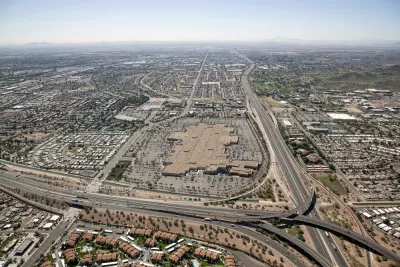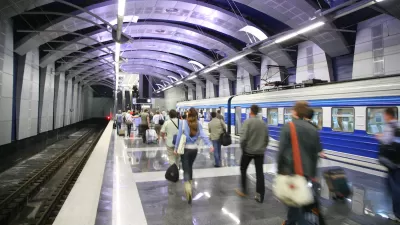Transportation for America, one of the leading advocacy organizations for multi-modal funding at the federal level, has announced a drastic change to its agenda.

"Transportation for America is no longer asking Congress to provide an increase in money for [the] federal transportation program."
That's the perhaps surprising revelation at the heart of a recent article by Beth Osbourne, who also states the reasoning behind the announcement:
Why in the world would we just pour more money into a program that is “devoid of any broad, ambitious vision for the future, and [in which] more spending has only led to more roads, more traffic, more pollution, more inequality, and a lack of transportation options,” as I wrote in the Washington Post during Infrastructure Week?
What the program should be about is accountability to the American taxpayer—making a few clear, concrete, measurable promises and then delivering on them. The program should focus on what we’re getting for the funds we’re spending—not simply whether or not money gets spent and how much there was.
Osbourne promises more details about the organization's new principles next week.
FULL STORY: Why we are no longer advocating for Congress to increase transportation funding

Maui's Vacation Rental Debate Turns Ugly
Verbal attacks, misinformation campaigns and fistfights plague a high-stakes debate to convert thousands of vacation rentals into long-term housing.

Planetizen Federal Action Tracker
A weekly monitor of how Trump’s orders and actions are impacting planners and planning in America.

In Urban Planning, AI Prompting Could be the New Design Thinking
Creativity has long been key to great urban design. What if we see AI as our new creative partner?

Pedestrian Deaths Drop, Remain Twice as High as in 2009
Fatalities declined by 4 percent in 2024, but the U.S. is still nowhere close to ‘Vision Zero.’

King County Supportive Housing Program Offers Hope for Unhoused Residents
The county is taking a ‘Housing First’ approach that prioritizes getting people into housing, then offering wraparound supportive services.

Researchers Use AI to Get Clearer Picture of US Housing
Analysts are using artificial intelligence to supercharge their research by allowing them to comb through data faster. Though these AI tools can be error prone, they save time and housing researchers are optimistic about the future.
Urban Design for Planners 1: Software Tools
This six-course series explores essential urban design concepts using open source software and equips planners with the tools they need to participate fully in the urban design process.
Planning for Universal Design
Learn the tools for implementing Universal Design in planning regulations.
planning NEXT
Appalachian Highlands Housing Partners
Mpact (founded as Rail~Volution)
City of Camden Redevelopment Agency
City of Astoria
City of Portland
City of Laramie





























